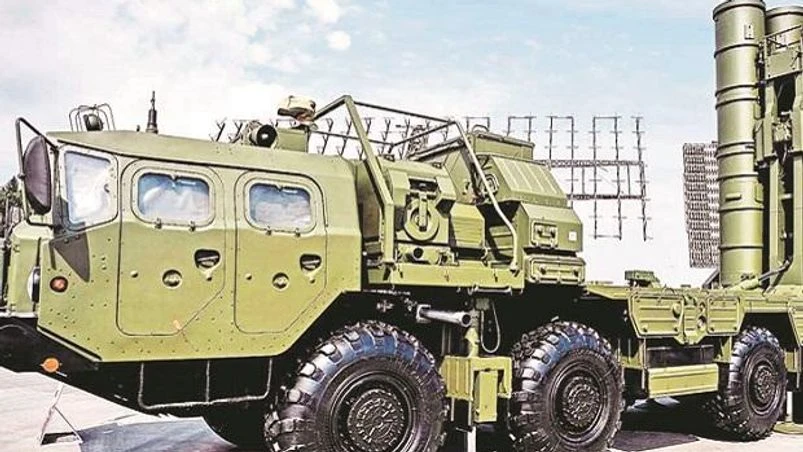 What does the Ukraine crisis mean for India's defence procurement?
What does the Ukraine crisis mean for India's defence procurement?
With the US, UK and the EU ratcheting up economic sanctions against Russia, India is faced with difficult choices. Let's explores the impact of the sanctions on India's defence deals with Russia
Krishna Veera Vanamali New Delhi
)
Between 2016 and 2020, Indian defence was the main recipient of Russian arms, accounting for 23% of the total arms import, according to the Stockholm International Peace Research Institute (SIPRI). 49.4% of India’s arms imports between 2016 and 2020 were from Russia and in the previous five years, Russia accounted for 69.6% of India's total arms imports.
While India’s arms imports from Russia have fallen from $3.85 billion in 2013 to $969 million in 2020, Russia continues to be India’s biggest defence supplier.
The defence business between the two countries is strong, with contracts worth over $15 billion in the pipeline.
Several Indian defence deals are vulnerable to sanctions under a 2017 US law, including the $5.4 billion contract for five long-range ground-to-air S-400 Triumf missile systems, the deliveries of which began in November last year. The air defence capability of India will be significantly enhanced with the induction of this system.
The US has previously objected to this purchase.
Besides this, India signed a $3 billion contract in 2019 to lease a Russian nuclear attack submarine for ten years, starting 2025.
Further, the Indian Air Force wants to buy and upgrade 21 MiG-29 fighter jets lying unused in Russia for about a billion dollars. It’s also considering a new contract to buy 18 Sukhoi-30MKI fighters for over $800 million.
A $2 billion deal for joint production of 200 Kamov 226T light helicopters, the $4 billion purchase of four stealth frigates, of which two are to be built in India, are also underway.
Defence expert and Business Standard columnist Ajai Shukla tells us what the threat of US sanctions mean for India’s defence procurement deals with Russia and the options that India has.
Meanwhile, the Centre is reportedly planning to strengthen the rupee-rouble trade arrangement with Russia after the US and its Western partners decided to cut off several Russian banks from the SWIFT financial messaging system that facilitates cross-border payments.
Trade in the rupee-rouble account has increased manifold since the Narendra Modi government assumed office in 2014.
Western sanctions on Russian banks could also disrupt India-Russia trade, particularly fertilisers that are crucial for India’s vast agriculture sector.
Watch video
Also Read
Don't miss the most important news and views of the day. Get them on our Telegram channel
First Published: Mar 01 2022 | 8:30 AM IST

